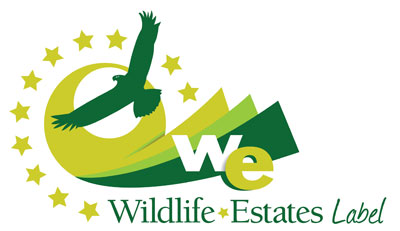Click above to find out how the Forum and our partners are supporting the Call to Action commitments
Partner case study – European Landowners’ Organization
Promoting pollinator friendly farm practices – the ELO Bee Award
Call to Action Commitment 2 – Valuing and accounting for the use of natural capital, such as water, soil, air, and biodiversity, by the agri-food system.
Call to Action Commitment 4 – Sharing knowledge and pursue innovation in technology and practices that support both food and environmental security and move away from those which don’t.

The European Bee Award acknowledges the great commitment of private and public organisations, as well as the involvement of the research community, to enhance pollinators’ wellbeing and support bee-friendly farming practices in Europe. Initiatives such as the European Bee Award are showcasing bees and pollinators as an essential part to enhance more sustainable farming practices in Europe. Indeed, there is a strong willingness to support innovative projects which could be scaled up for protecting bees’ and pollinators’ lives.
With the aim of acknowledging innovative, efficient and scalable projects that protect pollinators in Europe, the European Bee Award, established six years ago by the European Landowners’ Organization (ELO) and the European Agricultural Machinery Industry Association (CEMA), was awarded in 2023 to the following winners:
Category ‘Land management practices’: the winner was ‘LIFE PollinAction’ Actions for boosting pollination in rural and urban areas”. PollinAction is a LIFE project aimed at increasing landscape heterogeneity and connectivity through the creation of a Green Infrastructure (GI) in rural and urban landscapes, as a tool to mitigate the pollination crisis, increase pollinator provision and help develop multifunctional spaces.
Category ‘Innovative and technological solutions’: the winner was ‘SPEAR® Bioinsecticide by Vestaron’. SPEAR® is a novel peptide bioinsecticide, developed targeting a class of peptides that could kill insect and mite pests efficiently, but would be safe for humans, birds, fish, pollinators, and the environment. The company developed a proprietary platform for peptide optimisation and for fermentation-based production, to yield a wide variety of peptide-based solutions for crop protection challenges.

Learn more about the European Bee Award.
The Bee Award supports CTA 4 – sharing knowledge and pursue innovation in technology and practices that support both food and environmental security and move away from those which don’t. In addition, the project also contributes to CTA 2 – valuing and accounting for the use of natural capital, such as water, soil, air, and biodiversity, by the agri-food system.
Partner case study – European Landowners’ Organization
Wildlife Estates Label – implementing private sustainable land use and wildlife management practices
Call to Action Commitment 2 – Valuing and accounting for the use of natural capital, such as water, soil, air, and biodiversity, by the agri-food system.
Call to Action Commitment 4 – Sharing knowledge and pursue innovation in technology and practices that support both food and environmental security and move away from those which don’t.
Wildlife Estates Label is an initiative from the European Landowners’ Organization that aims to promote sustainable land use and wildlife management practices in privately held land throughout Europe. It helps to build recognition and to raise the standards among small-scale conservation efforts, through the
introduction of an objective accreditation system and a certification process.
The Wildlife Estates Label represents a voluntary commitment by land managers to work under the standards of wildlife management and conservation. It helps to promote the wide range of social, economic and environmental benefits of conservation efforts, and encourages landowners and land users to apply rigorously tested sustainable land management practices. The Label encourages best practice and helps bridge the divide between the priorities of land users and environmental concerns.
The project has currently more than 500 estates covering more than 2 million hectares to its credit and is still growing steadily. A scientific committee revises the scoring and evaluation methodologies on a regular basis, with modifications from each of the national delegations, as well as how to adapt to new EU standards and best practice guidelines.
Learn more about Wildlife Estates project.

The work undertaken by ELO on the Wildlife Estates Label supports CTA 2 – valuing and accounting for the use of natural capital, such as water, soil, air, and biodiversity, by the agri-food system. The work also supports the initiative to share knowledge and pursue innovation in technology and practices (CTA4).
